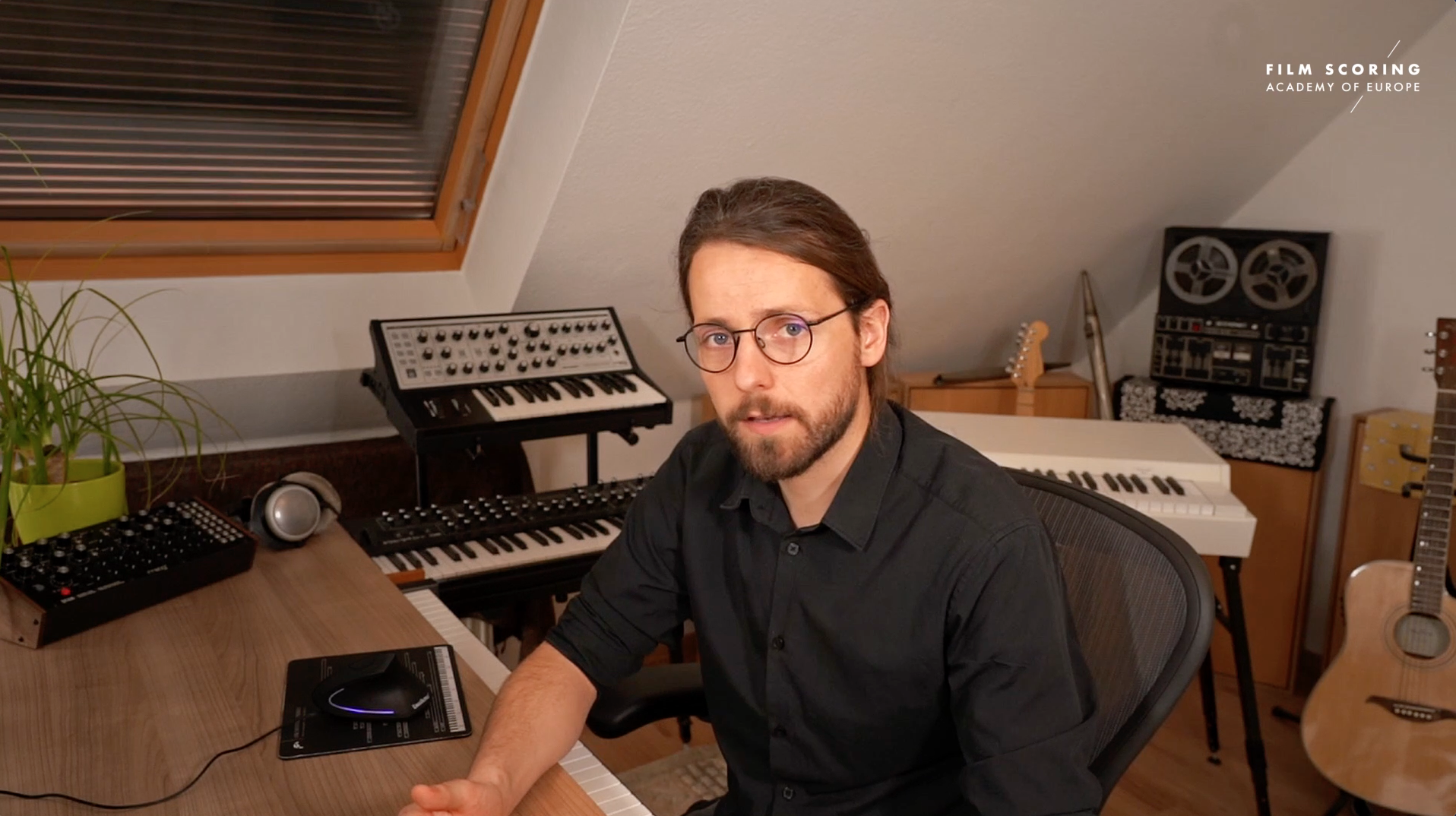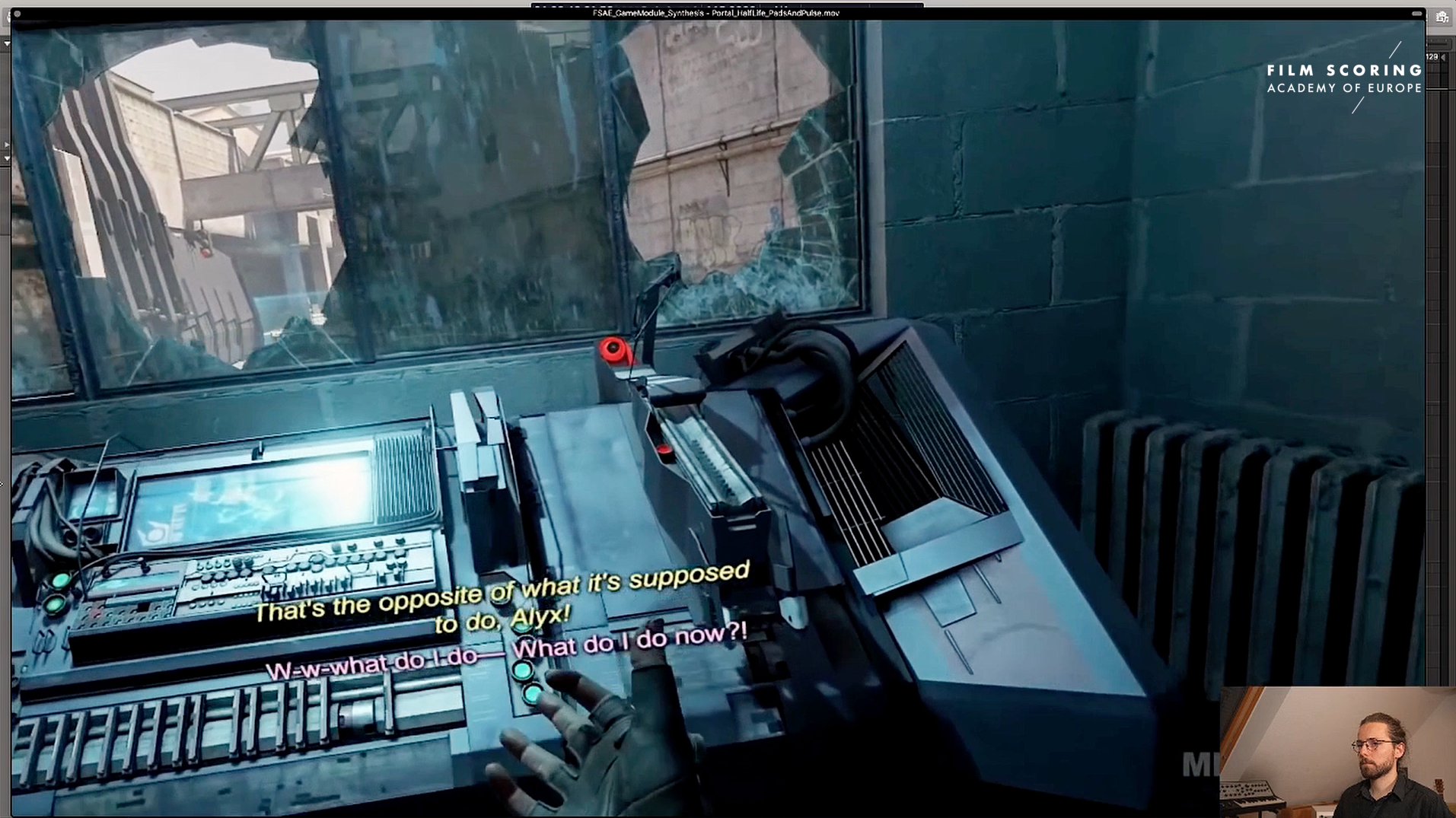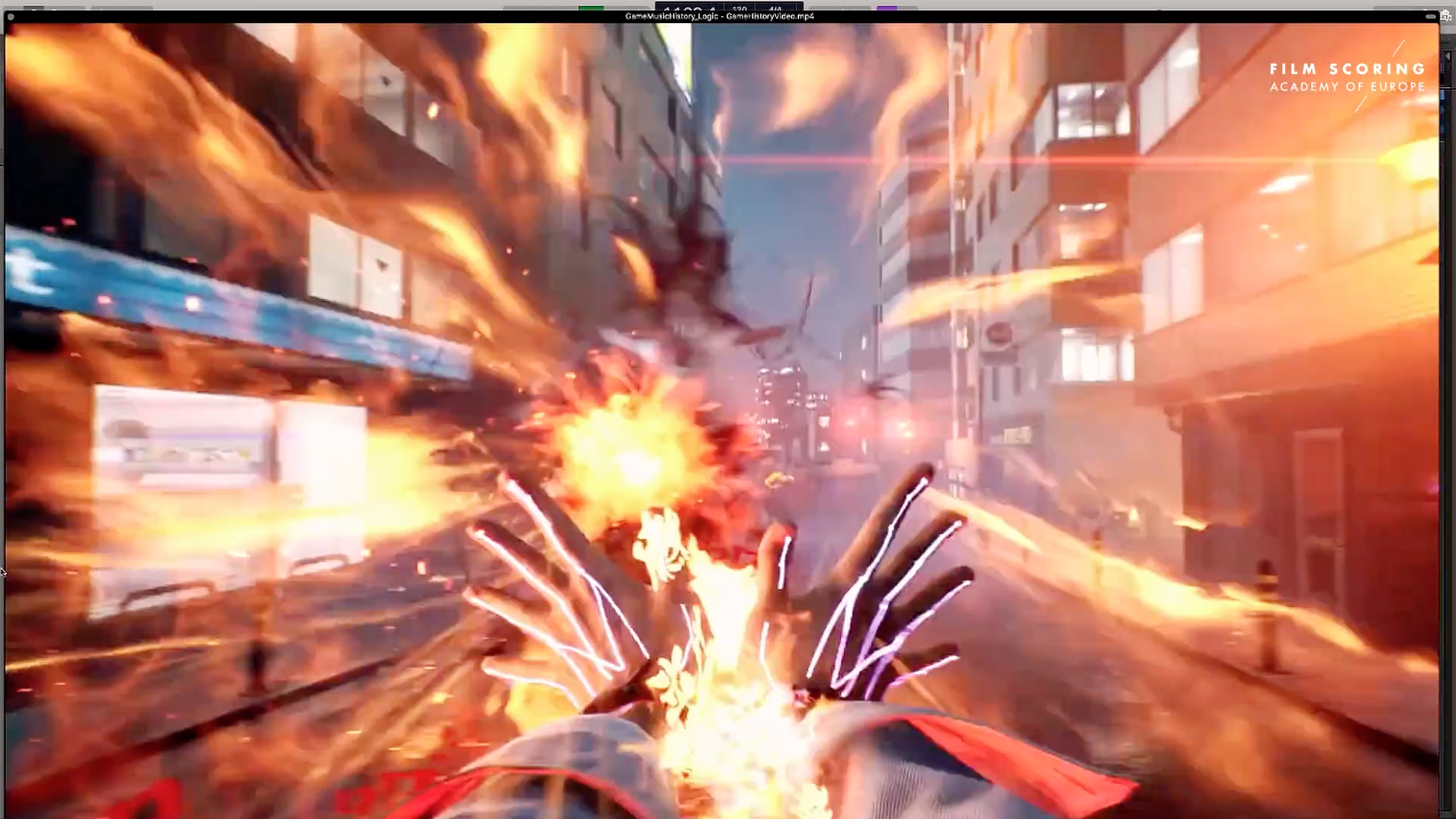Scoring for Games
Discover the challenges, benefits, and collaborative opportunities in the world of Scoring for Games and learn how to compose music that adapts and enhances the interactive gameplay experience in video games.
Module 9 (3 credits)
In this module on video game music production, you will be introduced to linear and non-linear compositional strategies tailored to the gaming industry. You will explore relevant workflows and methodologies, including interactivity, technical and compositional constraints, and file delivery processes.

What will you learn in this module?
- Adapting to Non-Linearity: Create music that seamlessly adapts to non-linear gameplay, dynamically changing based on player actions or events.
- Interactivity and Gameplay Integration: Integrate your music effectively with gameplay mechanics, enhancing the player's experience and aligning with the game's pacing and emotional moments.
- Technical and Compositional Constraints: Work within game engine limitations, memory constraints, and looping structures, optimizing compositions while maintaining artistic integrity.
- Collaboration with Game Developers: Collaborate effectively with game developers, understanding their vision and aligning the music with the game's narrative and aesthetics.
- File Delivery and Implementation: Learn about various file formats, delivery processes, and implementation methods for seamless integration of your music into the game engine.

Why do we want you to understand how to score for games?
- To expand your creative expression. Compose music that interacts with gameplay and enhances player engagement in video games.
- You’ll gain versatility and diversification. Expand career opportunities in the rapidly growing gaming industry, working on diverse projects and collaborations.
- To write immersive and interactive compositions. Create music that dynamically responds to player actions, crafting an immersive and interactive audio experience.
- Gain expertise in interactive music middleware, game engines, and implementation tools, using industry-standard software.
- Engage in close collaboration with game developers, sound designers, and audio engineers, contributing to the overall audio experience of the game.

Have questions about this programme?
Speak with our Admissions Department. Submit our enquiry form to receive personalised answers to your questions.